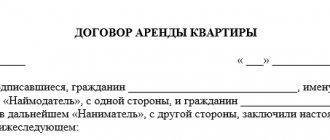Basic Concepts
Parties to the loan agreement
The parties to a loan agreement between individuals are the lender (the one who transfers the funds) and the borrower (the one who is simply obliged to return the funds on time, otherwise he will lose the real estate pledged as collateral). Any individuals, even foreign citizens and stateless persons, have the right to conclude such an agreement.
Requirements for collateral real estate
The collateral is real estate, which includes private houses, cottages, townhouses, land, rooms, even garages and unfinished real estate. The lender himself is free to set the requirements for the property subject to collateral. For example, he may demand that the property is not dilapidated or in disrepair, and that the house is not scheduled for demolition. Also, a potential investor will not be able to legally provide a loan for a share in real estate if ownership of it is not documented. Therefore, a non-privatized apartment cannot be mortgaged.
And, of course, you cannot pledge real estate that has been seized.
Documents for concluding contracts
According to the law, the pledge agreement is subject to mandatory registration with Rosreestr. To do this, you need to pay the state fee (currently it is 2,000 rubles), order an extract from the Unified State Register of Real Estate about the real estate property and the rights to it, and contact Rosreestr with a package of documents. It should contain: passports of the parties, loan and pledge agreements, an extract from the Unified State Register of Real Estate, a receipt for full payment of the state duty. You also need to draw up a joint statement of the parties. To register an encumbrance, you need a title document, certificates from the BTI, an extract from the house register, an act and order for redevelopment (if it was carried out), a notarized consent of the spouse and a certified copy of the marriage certificate.
To sign the collateral agreement itself, prepare the passports of both parties and the main loan agreement. The pledge agreement must include information about the real estate: exact address, technical data and price. To establish the value of real estate, use the services of an appraiser. Other information is taken from BTI certificates and the document on ownership of real estate.
Lawyers spoke about scams involving loans secured by an apartment
MOSCOW, November 28 – PRIME. Unscrupulous financial organizations offer clients to enter into a loan agreement and a real estate purchase and sale agreement with the condition of the possibility of repurchase, which can lead to the loss of their only home, lawyer Dmitry Usoltsev told RIA Real Estate.
Fraudsters have come up with a new scheme to deceive Russians
He explained that before November 1, 2021, there were often cases in practice in which microfinance organizations issued microloans secured by real estate. Violation of the terms of the loan agreement led to the fact that citizens lost, as a rule, their only home. Due to the widespread nature of this phenomenon, it attracted the attention of legislators, and microloans secured by real estate were banned. At the same time, you can currently find many advertisements in which these organizations have found loopholes in the legislation.
According to him, usurious interest, coupled with various penalties for late fulfillment of obligations, leads to the fact that the lender either forecloses on the collateral or even attempts to evict the debtor from the home and sell his real estate.
“Borrowers should pay attention that when pledging the property, it does not leave the mortgagor’s possession, while by concluding a purchase and sale agreement, the borrower is deprived of the rights to own and use the property,” Usoltsev said.
He added that another problem that may await borrowers is the lender’s evasion of accepting fulfillment of the obligation. A bona fide borrower, if the lender evades accepting the amount of debt and interest, must deposit funds with a notary in order to prevent delay.
The Bank of Russia spoke about a 100% chance of meeting “black lenders”
Deputy Chairman of the Moscow Bar Association “Judicial practice on invalidating enslaving or outright illegal transactions is extremely scarce, since fraudsters create the appearance of legal execution of documents as much as possible. If such a transaction takes place, then the chances of getting your property back are extremely small,” Prokofiev noted.
Maria Spiridonova, a member of the Russian Lawyers' Association, agrees with him. She emphasizes that if the loan and the collateral are disproportionate, there is a possibility that the contract will be invalidated if you react quickly and go to court. “There are such precedents, but the court takes into account a large number of factors. Simply on the basis that the borrower did not understand the meaning of the document, it is unlikely that it will be possible to challenge the agreement,” she clarifies.
Read also:
Russians warned about scammers using robots
Execution of a loan agreement secured by real estate between individuals
A credit agreement (loan agreement) between the parties, who are individuals, can be concluded orally or in writing. But the law requires written form for those contracts in which the stated amount exceeds 10 minimum wages. Strictly speaking, at this moment we stop talking about a loan, and begin to call such an agreement a loan agreement. But there won’t be any particular mistake here; we are talking exclusively about legal terminology, not meaning.
The contract can be paid or gratuitous (that is, interest-free). The lender will benefit if the agreement specifies a percentage for using the loan. But according to the law, the absence of this clause does not at all tell us that this agreement is gratuitous. A loan agreement can be interest-free only if the transaction between people occurs in an amount of no more than 50 minimum wages. Then the line about gratuitousness in the contract will be redundant.
Contents of the loan agreement
The loan agreement between individuals must indicate the following information: full name of the lender and borrower, their passport details and date of birth, registration and residence address; subject of the contract. At this point, it is necessary to introduce special additional conditions under the agreement, such as: a receipt, debt repayment terms, interest.
Next, you need to indicate the rights and obligations of the parties to this agreement, as well as liability (fine or penalty) for delay or improper storage of the pledged property; dates of entry into force and termination of the agreement, details and signatures of the parties to the agreement. A collateral agreement must be drawn up along with the loan agreement. The latter is valid as long as there is a loan agreement. The invalidity of the loan agreement will entail the invalidity of the pledge agreement.
Important details:
- The pledge of real estate between individuals is regulated by the mortgage law.
- The collateral must be owned by the pledgor.
- The encumbrance on the subject of pledge is registered at the request of the parties.
- Seizure on the collateral is imposed by court decision.
- The excess value of the property after its sale is returned to the borrower.
Foreclosure of mortgaged real estate
The pledgee may apply a judicial or extrajudicial procedure for foreclosure on the pledged property on the following grounds:
- obligations under the contract are not fulfilled in full or the deadline is violated;
- when concluding a pledge agreement, the pledgor did not warn the pledgee in writing that the pledge was already encumbered by another pledge, the right of lifelong use, rent, etc.;
- the pledgor incorrectly stores the property and there is a risk of loss of the pledged item;
- others provided for by the Law “On Mortgage”.
Typically, foreclosure on mortgaged real estate requires a court decision. Since the parties to the agreement are individuals, the statement of claim must be filed with the district court at the location of the subject of the pledge (real estate).
There is also an out-of-court procedure for foreclosure of real estate under collateral. It applies if the parties have a notarized loan agreement, the security for which is a pledge agreement, and the foreclosure of the mortgaged property takes place according to the notary’s writ of execution, and not according to a court decision.
So, to summarize: a loan secured by real estate between individuals involves real estate that costs more than 10 minimum wages, which means that you are unlikely to fall under the rule of the law on the oral procedure for concluding an agreement; it will need to be concluded in writing. The property offered as collateral must be privatized, not under arrest, and not be in disrepair or dilapidated. And, of course, the main thing: comply with the loan repayment deadlines, and you will return your pledged property intact!
Loan agreement secured by an apartment (mortgage)
AGREEMENT
cash loan secured by real estate (mortgage)
Moscow city
January 01, 2021
Ivanov Sergey Stanislavovich, born November 15, 1958, passport registered at the address: St. Petersburg, st. Molodosti, 1 kv. 1, hereinafter referred to as the “Borrower”, on the one hand, and Andrey Vladimirovich Petrov, passport registered at the address: Moscow, Butyrskaya, 6, hereinafter referred to as the “Lender”, on the other hand, collectively referred to as “ The Parties have entered into this agreement (hereinafter referred to as the “agreement”) as follows:
1. The Subject of the Agreement
1.1. Under this agreement, the Lender provides the Borrower with funds in the amount of 6,000,000 (six million rubles) on the terms of payment, repayment and urgency.
By this agreement, the parties confirm that the Borrower has an outstanding debt to the lender in the amount of 12,000,000 (twelve million rubles ) that arose before the date of conclusion of this agreement.
The total amount of the Borrower's debt to the lender under this agreement (loan amount) is 18,000,000 (eighteen million) rubles.
1.2. For the use of borrowed funds, the Borrower undertakes to pay the Lender interest in the amount of 2/3 of the refinancing rate
1.3. The Borrower undertakes to repay the Lender the loan amount and interest for the use of borrowed funds no later than 2 (two) months from the date of conclusion of this agreement.
1.4. To ensure repayment of the loan amount and interest for the use of borrowed funds, the Borrower pledges to the Lender a 3-room apartment with a total area of 131.8 sq. m. m, located at the address: St. Petersburg, st. Molodosti, 1, apt. 1 (hereinafter referred to as the apartment). The apartment belongs to the Borrower on the right of ownership, which is confirmed by a certificate of registration of title dated 01/01/2000.
1.5. At the time the apartment was pledged to the Lender, the apartment was encumbered with collateral under loan agreement No. 53802-IK/12 dated June 25, 2012. The borrower undertakes to remove the specified encumbrance no later than one month from the date of conclusion of this agreement.
2 Terms of pledge
2.1. The pledge ensures the fulfillment of the Lender's claims specified in Section 1 of this agreement, claims for the collection of any sanctions for non-fulfillment or improper performance by the Borrower of its obligations, claims for the collection of legal costs, as well as any other losses of the Lender arising in connection with non-fulfillment or improper performance of this agreement Borrower.
2.2. In case of partial fulfillment of the obligation provided for in Section 1 of this agreement, the pledge is retained in its original amount until the secured obligation is fully fulfilled.
2.3. The collateral (apartment) is estimated by the parties at 25,000,000 (twenty-five million) rubles.
2.4. Subsequent pledge of the apartment by the Borrower is permitted only with the written consent of the Lender.
2.5. The collateral remains in the possession and use of the Borrower.
3 Interest on the loan
3.1. The period for calculating interest for the use of the loan amount begins from the date of provision to the Borrower of the funds specified in paragraph 1 of clause 1.1 of this agreement and ends on the date of repayment of the loan amount to the Lender in full.
3.2. The Borrower undertakes to pay the Lender interest for the use of borrowed funds in a lump sum with the repayment of the loan amount.
4 Rights and obligations of the borrower
4.1. The borrower guarantees that at the time of concluding this agreement the collateral has not been alienated or is under arrest. The Borrower undertakes to remove existing encumbrances on the terms established by clause 1.5 of the agreement.
4.2. The borrower guarantees that the collateral will not be re-pledged until the obligation secured by the collateral is fulfilled in full.
4.3. The Borrower undertakes to immediately notify the Lender of information about changes that have occurred with the collateral, about encroachments by third parties on the collateral, or about the emergence of a threat of loss or damage to the collateral.
4.4. The Borrower undertakes not to alienate or assign the collateral to third parties without the written consent of the Lender.
4.5. The borrower has the right to own and use the apartment in accordance with its intended purpose, to receive income from the use of the apartment, ensuring its safety.
5 Rights and obligations of the creditor
5.1. The creditor has the right to foreclose on the collateral before the deadline for fulfillment of the obligation secured by the collateral in case of violation of clause 1.1, clause 1.3, clause 1.5 of this agreement.
5.2. Foreclosure of the subject of pledge is carried out by a court decision in accordance with the current legislation of the Russian Federation.
6 Other conditions
6.1. This agreement is drawn up in three identical original copies - one copy for each of the parties, and one for the registering authority.
6.2. This agreement is subject to state registration in the prescribed manner and is considered to have entered into legal force from the moment of its registration. After registration of this agreement, one original of the agreement is transferred to the Borrower, and the other - to the Lender.
6.3. Amendments and termination of this agreement are made by mutual agreement of the Parties in the manner prescribed by law by concluding an additional agreement in writing and registered in the manner prescribed by the legislation of the Russian Federation.
6.4. If disputes and disagreements arise during the execution of this agreement, the Parties undertake to take all measures to resolve them through negotiations. If an agreement is not reached, the dispute will be referred for resolution at the location of the subject of the pledge - to the Savelovsky District Court of Moscow.
6.5. All agreements that existed between the parties before the conclusion of this agreement, including agreements on debts that the Borrower had to the Lender at the time of concluding this agreement, shall become invalid from the moment this agreement enters into force.
Creditor
Borrower











